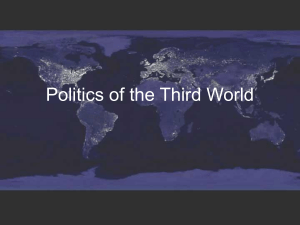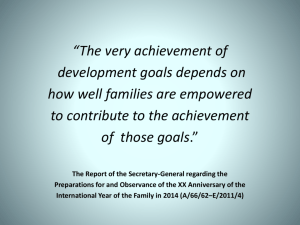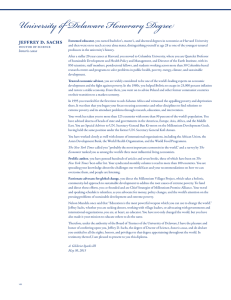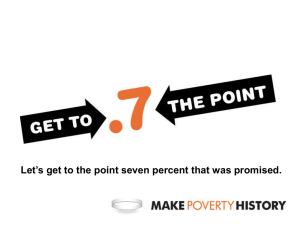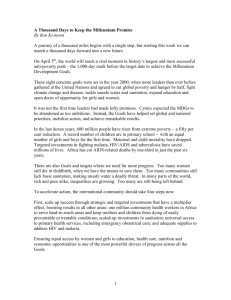the eu development policy statement
advertisement
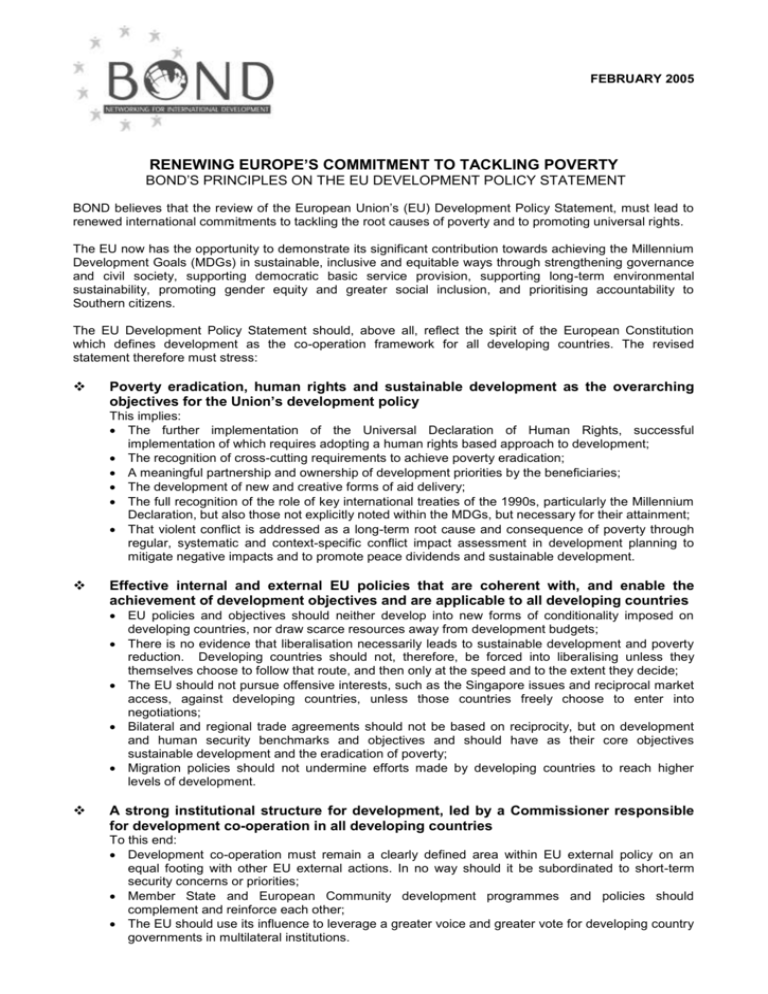
FEBRUARY 2005 RENEWING EUROPE’S COMMITMENT TO TACKLING POVERTY BOND’S PRINCIPLES ON THE EU DEVELOPMENT POLICY STATEMENT BOND believes that the review of the European Union’s (EU) Development Policy Statement, must lead to renewed international commitments to tackling the root causes of poverty and to promoting universal rights. The EU now has the opportunity to demonstrate its significant contribution towards achieving the Millennium Development Goals (MDGs) in sustainable, inclusive and equitable ways through strengthening governance and civil society, supporting democratic basic service provision, supporting long-term environmental sustainability, promoting gender equity and greater social inclusion, and prioritising accountability to Southern citizens. The EU Development Policy Statement should, above all, reflect the spirit of the European Constitution which defines development as the co-operation framework for all developing countries. The revised statement therefore must stress: Poverty eradication, human rights and sustainable development as the overarching objectives for the Union’s development policy This implies: The further implementation of the Universal Declaration of Human Rights, successful implementation of which requires adopting a human rights based approach to development; The recognition of cross-cutting requirements to achieve poverty eradication; A meaningful partnership and ownership of development priorities by the beneficiaries; The development of new and creative forms of aid delivery; The full recognition of the role of key international treaties of the 1990s, particularly the Millennium Declaration, but also those not explicitly noted within the MDGs, but necessary for their attainment; That violent conflict is addressed as a long-term root cause and consequence of poverty through regular, systematic and context-specific conflict impact assessment in development planning to mitigate negative impacts and to promote peace dividends and sustainable development. Effective internal and external EU policies that are coherent with, and enable the achievement of development objectives and are applicable to all developing countries EU policies and objectives should neither develop into new forms of conditionality imposed on developing countries, nor draw scarce resources away from development budgets; There is no evidence that liberalisation necessarily leads to sustainable development and poverty reduction. Developing countries should not, therefore, be forced into liberalising unless they themselves choose to follow that route, and then only at the speed and to the extent they decide; The EU should not pursue offensive interests, such as the Singapore issues and reciprocal market access, against developing countries, unless those countries freely choose to enter into negotiations; Bilateral and regional trade agreements should not be based on reciprocity, but on development and human security benchmarks and objectives and should have as their core objectives sustainable development and the eradication of poverty; Migration policies should not undermine efforts made by developing countries to reach higher levels of development. A strong institutional structure for development, led by a Commissioner responsible for development co-operation in all developing countries To this end: Development co-operation must remain a clearly defined area within EU external policy on an equal footing with other EU external actions. In no way should it be subordinated to short-term security concerns or priorities; Member State and European Community development programmes and policies should complement and reinforce each other; The EU should use its influence to leverage a greater voice and greater vote for developing country governments in multilateral institutions.
